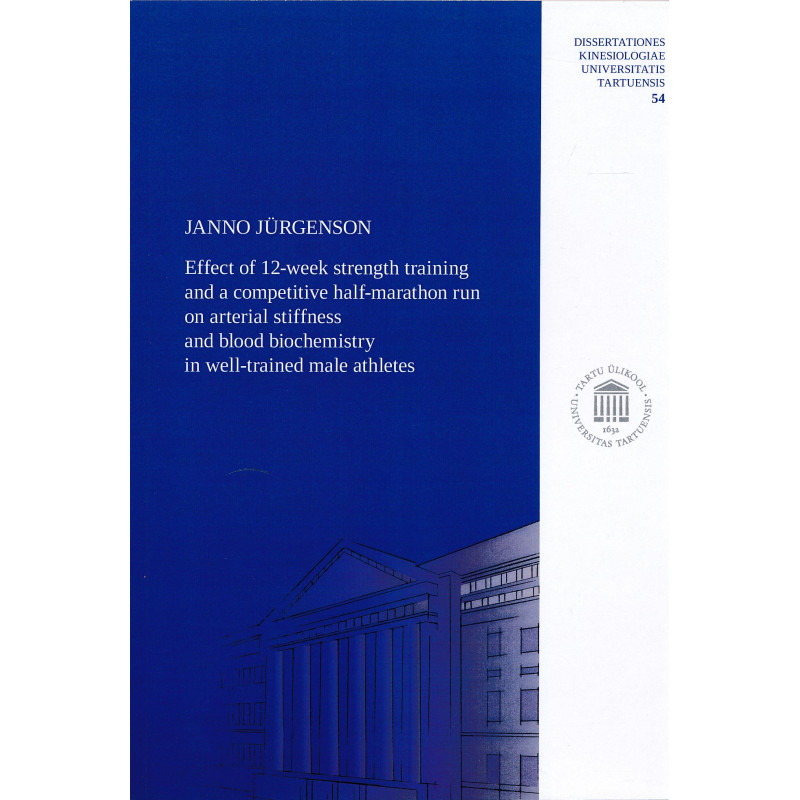



Tartu : University of Tartu Press, 2022
104 p. : ill. : table
ISBN: 9789949039678
Dissertationes kinesiologiae Universitatis Tartuensis, 1406-1058 ; 54
Paperback new dissertation.
Effect of 12-week strength training and a competitive half-marathon run on arterial stiffness and blood biochemistry in well-trained male athletes.
Arterial stiffness characterizes the ability of the arteries to dilate under the influence of blood pressure. In case of stiffed arteries, the chronically increased load on the heart may lead to excessive ventricular hypertrophy. Previous studies have shown beneficial effect of exercise on arterial stiffness. However, most of these studies have been performed in untrained, obese or hypertensive subjects involved in low to moderate intensity aerobic exercise training. On the other hand, training loads in well-trained athletes are usually much higher, far exceeding the generally recommended physical activity level. Furthermore, there is lack of data on the effect of strength training on arterial stiffness in competitive powerlifting athletes. At the same time, an increased prevalence of hypertension and myocardial hypertrophy has been reported in strength-trained athletes compared to endurance athletes. Generally, aerobic endurance exercise has a beneficial effect on the cardiovascular system. Nevertheless, the intensity of acute physical load during competition in well-trained endurance athletes is very high, exceeding the anaerobic threshold. Such an intensive exertion is characteristic of a competitive half-marathon race, for example. Therefore, an important question arises: whether an intense strength training program or a competitive half-marathon race followed by an incomplete recovery will cause adverse effects on the cardiovascular system, including increased arterial stiffness. In addition, the inflammatory response and oxidative stress induced by intense exercise may contribute to adverse changes in arterial stiffness. In the framework of this doctoral thesis we evaluated the effects of 12-week supervised strength training and a competitive half-marathon race on arterial stiffness and related cardiovascular risk markers. Our results reveal that the 12-week pre-season strength training program had a beneficial effect on the brachial and central systolic blood pressure in male elite powerlifters and it also improved their left and right ventricular function. Strength training did not affect arterial stiffness in our athletes. Similarly, a half-marathon race had no significant influence on arterial stiffness in competitive and recreational male athletes during the post-competition recovery period. Nevertheless, regression analysis revealed that relatively higher training status and faster finish time correlated with relatively higher oxidative stress level and unfavourable shifts in arterial stiffness.